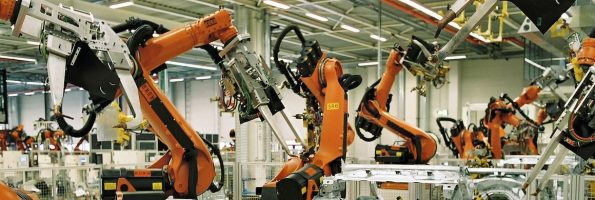Stanford GSB Unveils Research on Effects of Spillover in Online Ads

Research published in the Journal of Marketing Research by Stanford Graduate School of Business (GSB) Associate Professor of Marketing Navdeep Sahni reveals how “spillover” from online advertising can inadvertently give a leg up to a rival company, according to this recent article.
Sahni says “spillover” often occurs when “consumers who see an ad make mental associations beyond their impression of the brand that’s being advertised.” Sahni set up “11 randomized field experiments” in which he was able to track the click-through patterns of 189,650 users of an Indian restaurant review site across four months.
Sahni discovered that any ad the site ran “increased the sales leads of individual competitors by an average of 4 percent” and cumulatively increased “competitors’ sales [at] about 5x the increase in the advertiser’s sales.”
Sahni’s research indicated that the companies, which received boosts of up to 25 percent, “offered menus similar to the advertiser’s” and were rated highly by the site’s users. Spillover had little to no perceived effect on well-known restaurants that “offered menus like the advertiser’s.”
One surefire way advertisers can reduce the effects of spillover, according to Sahni, is to “beat the competitors that your ad reminds people of.” He adds that advertisers ought to rethink “the content of their ads, emphasize what distinguishes their eatery from their competitors, [and] consider what their customers value.”
Sahni also recommends that advertisers maximize exposure to banner ads, as he found “no evidence of spillovers among customers who were exposed to an ad more than three times.”
Stanford GSB Works to Close Achievement Gap Among Disadvantaged College Freshmen

Stanford Graduate School of Business (GSB) recently posted an article on cutting-edge research published in Proceedings of the National Academy of Sciences that explores how “first-generation, low-income, and minority students” can effectively “weather the transition to college life.” The findings offer a way to close the college freshmen achievement gap by approximately one-third.
Continue reading…
Stanford Alum Talks Uber-Style App for Busy Families

Stanford’s Graduate School of Business recently published an article on its blog in which alumna Joanna McFarland (MBA ’05) offers an overview of HopSkipDrive, an “Uber-style” platform she co-founded with Carolyn Yashari Becher and Janelle McGlothlin to “match parents with drivers who shuttle their kids to and from school and activities.” Since it launched in November 2014 in Los Angeles, Farland’s service has arranged “tens of thousands of rides per month” for “busy families.” And families are busier than ever. Indeed, according to Pew Center research, 60 percent of American children live in families in which all parents work outside of the home.
Business School to Break Into Tech?

Career changes are inevitable in this topsy-turvy economy, but how can business school graduates parlay their expertise into a lucrative and potentially high-impact career in the tech industry, which largely sources talent with more technical backgrounds?
Top MBA Recruiters: Apple

Okay, let’s take a second to think about something: How many Apple products do you own? Macbook Pro, check; iPhone, check; Apple Watch, check; the list goes on and on.
Apple has created, produced and innovated such great products over the years that the company has really changed the face of the consumer electronics industry. The late Steve Jobs—a college dropout—gets a lot of the credit for Apple’s industry success, but there’s also a team of MBAs working for the Cupertino-based company, each making sure that the innovation doesn’t stop. Continue reading…
Stanford Adjunct Teaches Better Communication Through Improv

Stanford’s Graduate School of Business recently published an interview with People Rocket founder Richard Cox, whose cutting-edge management design firm employs techniques from improvisational theater to advise corporate leaders. Executives from Google and JPMorgan Chase depend on Cox so they can “get other people to take actions.” Continue reading…
